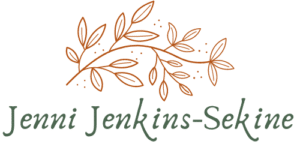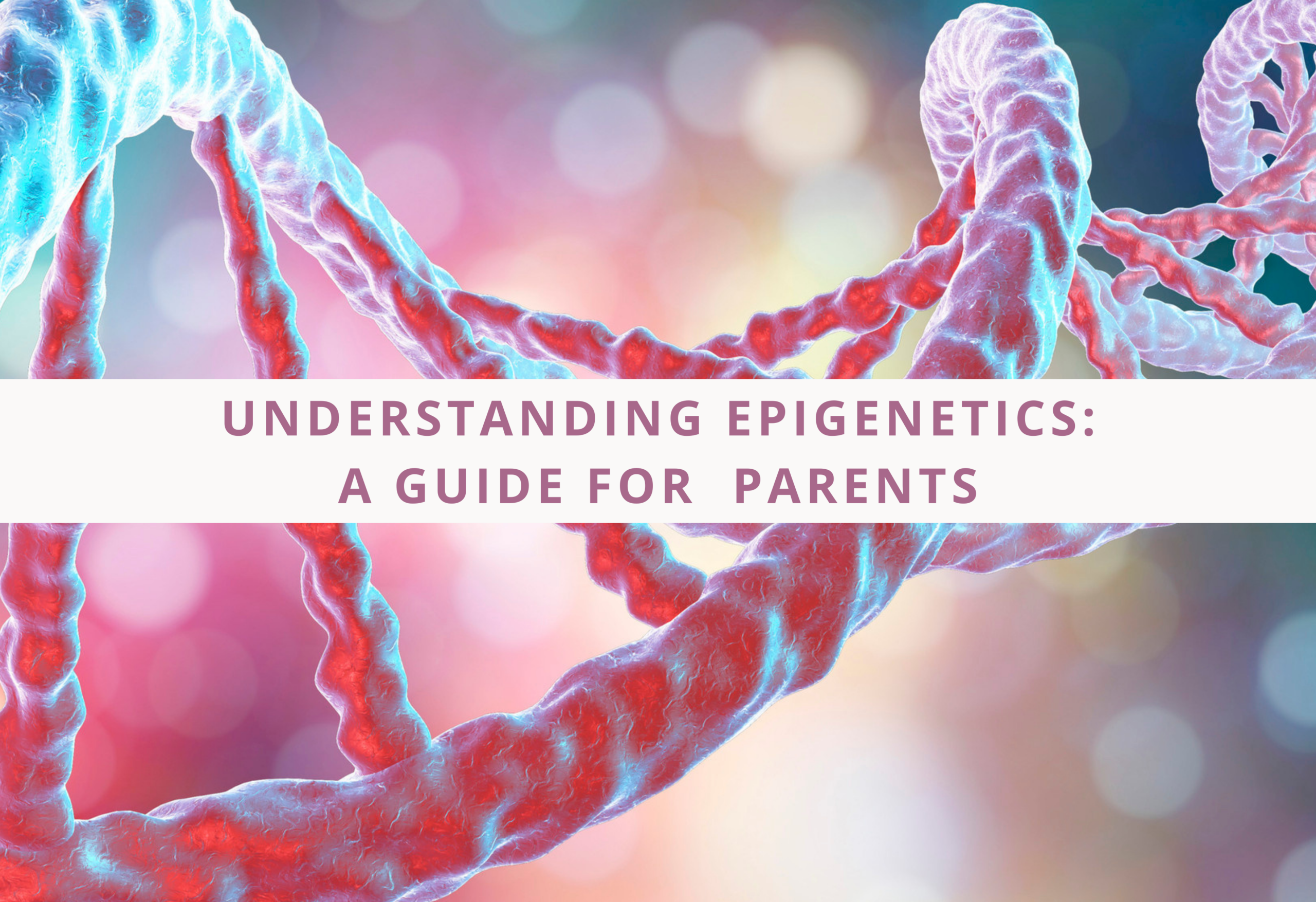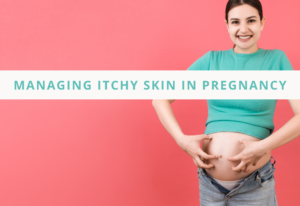Welcome to the fascinating world of epigenetics, a field of science that’s unraveling how the choices we make and the environments we’re exposed to can directly impact the health and well-being of our future children! If you’re planning to start a family or add to your family, understanding epigenetics can offer incredible insights into how your lifestyle choices could influence your children, even before they’re born.
So, what is epigenetics? In the simplest terms, it’s the study of changes in organisms caused by modification of gene expression rather than alteration of the genetic code itself. Imagine your DNA as a massive library of instructions for building and maintaining you. Epigenetics is like the library’s unique system that decides which books are pulled from the shelves to be read and which ones remain tucked away. These “decisions” can significantly affect our health, and here’s the fascinating part — they can be influenced by our environment, diet, stress levels, and more.
For those dreaming of parenthood, this knowledge is empowering. It means that the choices you make today can have a profound impact on the health and development of your future children. This blog post aims to demystify epigenetics and explain why it’s a game-changer for anyone looking to conceive. Let’s dive into how your behaviors now can shape the health and happiness of generations to come.
What is Epigenetics?
Imagine your body as a high-tech machine that’s built and run according to a very detailed set of instructions known as your DNA. This DNA is like a blueprint that determines everything from the color of your eyes to how tall you grow. That’s the role of genetics—passing on these instructions from parents to their children. But there’s another layer to this story, and that’s where epigenetics comes into play.
Definition of Epigenetics in Simple Terms
Epigenetics, in essence, is the study of how your behaviors and environment can cause changes that affect the way your genes work. Unlike genetics, which deals with the DNA code itself, epigenetics looks at the activities of your genes. Think of it like this: if your DNA is a movie script, epigenetics is the director that influences how the script is brought to life but doesn’t change the script itself. It’s about which genes are turned on or off and how much of a gene’s product is made.
Genetics vs. Epigenetics
To put it simply, genetics is about the genes you inherit from your parents—the fixed sequence of your DNA. Your genetic code is like a recipe book; it doesn’t change. Epigenetics, on the other hand, is more about gene expression—whether those genes are active or silent. It’s dynamic and can be influenced by various factors including your diet, stress levels, and exposure to toxins.
Examples of Epigenetic Changes
A classic example of an epigenetic change is the impact of diet and nutrition. Studies have shown that what a pregnant person eats can influence the baby’s risk of developing certain diseases later in life, like diabetes. This doesn’t mean the baby’s DNA sequence changes; rather, the expression of genes related to metabolism can be altered.
Another example is how stress can leave an epigenetic mark on genes associated with the stress response. People who experience severe, prolonged stress during childhood may have a heightened stress response, a change that’s been linked to epigenetic modifications.
Lastly, consider how twins can have identical DNA but, as they age and lead different lives, they might not look exactly the same or have the same health issues. These differences can often be traced back to epigenetics—variations in how their genes are expressed due to their unique experiences and environments.
In summary, epigenetics adds a fascinating layer to our understanding of how genes work. It shows us that while we can’t change the genes we’re born with, there’s a lot we can do to influence how those genes impact our health and the health of future generations.

How Does Epigenetics Work?
Now that we’ve introduced the concept of epigenetics, let’s dive a bit deeper into how it actually works. Your body is like a complex machine that’s constantly responding to the world around it. Epigenetics is one way your body adjusts to these changes, not by altering the DNA itself (the core instructions for building you) but by changing how easily those instructions can be read and followed.
The Influence of Lifestyle and Environment
Think of your DNA as a book full of recipes for making you. Epigenetics involves adding or removing bookmarks and notes in the margins of this book. These notes can highlight certain recipes to be used more frequently or hide others from being used at all. What’s fascinating is that many factors can lead to these epigenetic changes, including your diet, how much stress you experience, your physical activity levels, and even exposure to pollutants. These lifestyle and environmental factors can add or remove those bookmarks and notes, influencing how your body operates.
DNA Methylation and Histone Modification: The Technical Side
Without getting too bogged down in the science, two of the main ways your body does this bookmarking are called DNA methylation and histone modification.
DNA Methylation is like adding a sticky note that says, “Ignore this recipe for now.” It directly adds a chemical group to parts of the DNA, making it harder for the cell to access and follow those instructions. This can turn genes off, ensuring that certain traits or tendencies aren’t expressed.
Histone Modification works a bit differently. If your DNA is thread wrapped around spools called histones, then histone modification is like tightening or loosening the thread on the spool. This changes how easily the cell can read the DNA wrapped around those histones. It can make genes more accessible (turned on) or less accessible (turned off) without altering the DNA itself.
Both of these processes are natural and happen in everyone to some extent. They help your body adapt to its environment and can influence everything from how easily you gain muscle to how your metabolism works. What’s truly remarkable is that some of these epigenetic changes can be passed down to your children, meaning the lifestyle choices you make today could influence the health and characteristics of your future generations.
Understanding epigenetics empowers us to make choices that not only benefit our health but also the health of our children and grandchildren. In the next section, we’ll explore the benefits of understanding epigenetics for future parents and how it can influence generations to come.
Benefits of Understanding Epigenetics for Future Parents
Embarking on the journey of parenthood comes with a deep desire to give our children the best start in life. Understanding epigenetics hands future parents a powerful tool to do just that. By recognizing how our behaviors and environment can influence the health of our children, we unlock the potential to positively shape their future.
Knowledge is Power
Gaining insight into epigenetics illuminates how choices made before and during pregnancy can ripple through the health of our children. For instance, a balanced diet and a stress-managed lifestyle don’t just benefit you; they lay down a foundation for your child’s lifelong health. This knowledge encourages us to adopt healthier habits, not just for our well-being but as a legacy we pass on to our children and beyond.
A Positive Influence
The beauty of understanding epigenetics lies in the power it gives us to influence the health of future generations positively. By making informed choices about our environment and lifestyle, we can potentially steer our family’s health narrative towards one of vitality and resilience. It’s an empowering realization that our actions today can foster a healthier tomorrow for our descendants.
Impact of Parental Behaviors on Epigenetics
The way we live our lives leaves an imprint on our genetic material, an imprint that can be passed down to our children. Let’s explore how certain behaviors can influence epigenetic changes, potentially affecting the health and well-being of our offspring.
Nutrition and Diet
What we eat doesn’t just fuel our bodies; it can also modify our DNA’s epigenetic marks. A diet rich in folate, B vitamins, and methionine has been shown to influence DNA methylation positively. These nutrients support vital processes in our bodies and can help ensure that our genes are expressed in a way that promotes health — an effect that can be beneficial for our children.
Stress and Emotional Well-Being
Our emotional health has a more significant impact on our genetics than we might think. Chronic stress can lead to changes in both DNA methylation and histone modification, potentially affecting gene expression related to mood, anxiety, and stress management in ourselves and possibly our future children. Managing stress through mindfulness, therapy, and relaxation techniques can thus be a gift to both our and our children’s genetic expression.
Physical Activity
Regular exercise does more than keep us fit; it can also lead to beneficial epigenetic modifications. These changes can improve how our bodies process sugars and fats, reduce inflammation, and enhance mood — benefits that may also extend to our offspring, contributing to a healthier start in life.
Exposure to Toxins and Pollutants
Our environment plays a crucial role in shaping our epigenetics. Exposure to pollutants, toxic chemicals, and even tobacco smoke can lead to harmful epigenetic changes. These changes can affect not just our health but can be passed down to our children. By choosing cleaner, less polluted environments and avoiding toxins, we can protect our family’s genetic health for generations to come.
In understanding how our behaviors impact our epigenetics, we’re given the opportunity to make choices that not only enhance our lives but can also pave the way for healthier future generations. The responsibility is significant, yet so is the empowerment it brings. By embracing healthier habits, we’re not just caring for ourselves — we’re nurturing the well-being of our children and their children after them.

Tips for Parents on Positive Epigenetic Influences
As future parents, understanding the power of epigenetics is just the beginning. Implementing practical strategies to harness this knowledge can lead to healthier lives for both you and your future generations. Here are some actionable tips to create a positive impact:
Create a Healthy Environment
- Eat a Balanced Diet: Incorporate plenty of fruits, vegetables, whole grains, and lean proteins into your diet. Foods rich in folate, B vitamins, and antioxidants can support healthy gene expression.
- Stay Active: Regular physical activity is not just good for your body but also your genes. Aim for a mix of cardio, strength training, and flexibility exercises.
- Manage Stress: Practice stress-reduction techniques such as mindfulness, meditation, or yoga. A calm and happy state of mind can positively influence your genetic expression.
- Avoid Toxins: Minimize exposure to harmful chemicals and pollutants. Opt for natural cleaning products, avoid smoking, and reduce alcohol consumption.
Prioritize Prenatal Care and Early Childhood Development
- Seek Regular Prenatal Care: Regular check-ups with your healthcare provider can ensure you and your baby are healthy, offering a chance to catch and address any potential issues early.
- Foster Early Learning: Engage with your child through reading, music, and play. Positive sensory experiences can support healthy brain development and epigenetic markers.
Conclusion
The journey through understanding epigenetics reveals a powerful truth for future parents: the choices you make today can echo through the generations. By embracing a lifestyle that promotes healthy epigenetic influences, you’re not just investing in your well-being but also in the health and happiness of your future children and grandchildren.
This knowledge empowers us to take control of our health destinies to some extent, encouraging us to adopt behaviors that foster a vibrant, healthy future for the next generations. As we’ve seen, everything from what we eat and how we manage stress to our exposure to environmental toxins can play a role in shaping our epigenetics — and, by extension, the health of our children.
Let this understanding of epigenetics inspire you to make positive changes in your life. It’s a unique opportunity to influence the future in the most personal way possible — through the legacy of health we pass down to our children. So, embrace this knowledge, make informed choices, and step into the role of a health-conscious parent with confidence and hope for the future.
Did you Enjoy this Parents Guide?
Read my other parents guide, Home Birth, Birth Center, Or Hospital? An Expecting Parent’s Guide
References
Grace, K. T., Farley, C. L., Jeffers, N. K., & Tringali, T. (2024) Prenatal and Postnatal Care: A Person-Centered Approach (Third Edition). Wiley. Kindle Edition.
Li, Y. (2021). Modern Epigenetics Methods in Biological Research. Methods, 187, 104. https://doi.org/10.1016/j.ymeth.2020.06.022
National Human Genome Research Institute. (2020). Epigenomics Fact Sheet. National Institute of Health. https://www.genome.gov/about-genomics/fact-sheets/Epigenomics-Fact-Sheet
Tiffon, C. (2018). The Impact of Nutrition and Environmental Epigenetics on Human Health and Disease. International Journal of Molecular Sciences, 19(11). https://doi.org/10.3390/ijms19113425





